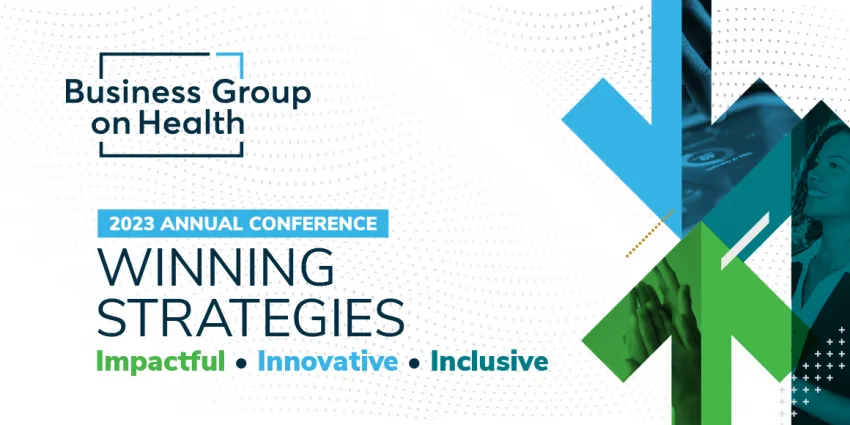



By Kurt Cegielski, Chief Commercial Officer
I recently attended Business Group on Health’s Annual Conference in Washington D. C., which focused on employee health solutions that are innovative, impactful, and inclusive. While there, we heard directly from HR, benefits, and well-being professionals about solving employee health challenges with a level of responsibility that left me and my colleagues feeling hopeful and inspired.
Here are the three biggest themes we took away from the conference:
Throughout the conference, we saw how mental health has become a business imperative, not just a priority for benefits teams. According to the American Psychological Association’s 2022 Work and Well-being Survey, 81% of individuals said they’ll seek out workplaces that support mental health when looking at future job opportunities. Employers are responding to this need and leaders like Accenture CMO, Tam Brownlee, MD discussed how they are looking at diverse, creative ways to enhance their mental health solutions. Accenture and others continue to expand mental health benefits and invest in innovative offerings ranging from AI and digitally focused solutions to more human-delivered therapies.
At MOBE, we know the difference employer-provided solutions can make in an employee’s mental health, especially if they involve one-to-one conversations with a supportive guide. MOBE’s whole-person approach has resulted in our participants reporting a 60% improvement in their mental well-being.
Employers and health industry partners who attended were extremely invested in their shared responsibility for the health of the communities in which they operate, with some describing benefits work as “population health at the employer level.” There was a deep understanding among speakers and attendees that if their communities aren’t healthy, their current and future employees can’t be either.
There was also an emphasis on addressing specific health issues facing women. Women’s health care topics have previously been ignored and under-resourced, and many employers are taking action to invest in and build loyalty among this population. According to Mercer’s 2023 Health and Benefits Strategies Report, 48% of employers with 5,000 or more employees provide at least one specialized benefit or resource to support reproductive health, which could include benefits to support high-risk pregnancies, lactation, pre-conception family planning, pregnancy loss, or menopause. I’d expect this number to increase as more employers see these as important investments.
A conference topic all of us at MOBE are keenly aware of is that the rising cost of health care remains a leading concern for employers. While employers continue to seek solutions that control overall health care costs, they’re also looking at cost-containment strategies in specialty segments such as family planning, cancer guidance, mental health, and EAP solutions.
A large part of controlling these costs involves measuring the effectiveness of benefit solutions. Employers are examining which solutions are really working and how they can streamline them to impact health outcomes and improve employee health and happiness. For example, diversity, equity, and inclusion initiatives are critically important, but they need to be meaningful, led by caregivers skilled in working with diverse populations, and must engage those who’ve been historically ignored in a way that listens and responds to their unique needs.
On behalf of the team at MOBE, I’d like to commend the Business Group on Health for selecting a conference theme that inspired needed conversations about inclusivity, impact, and innovation in employee health benefits. As partners in this work, we’re here to help drive change in a way that brings value to employers while providing innovative, personalized health care to employees and leaving a lasting impact on communities.